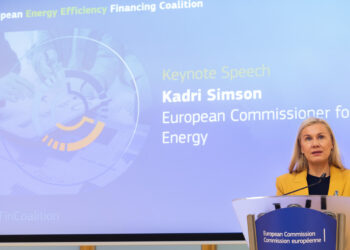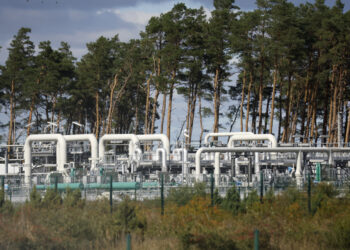Brussels – The European Commission takes stock of the two-year implementation of the RePowerEu energy plan, unveiled on May 18, 2022, amid the energy crisis driven by Russia’s war in Ukraine. Italy faces a paradoxical dilemma: “One of the leading markets in clean technologies” but still “very dependent on fossil fuels.” Which, in 2022, was 79 per cent of the boot‘s gross available energy.
In the report dedicated to Rome, the EU executive first points out that between August 2022 and January 2024, Italy reduced gas consumption by 17 per cent. A result that, although below the average reduction of 18 per cent recorded at the EU level, achieves the voluntary demand reduction target of 15 per cent set by Brussels. It is far behind Denmark (-40 per cent) but better, among others, than Germany (-16 per cent), Belgium (-16 per cent) and Spain (-12 per cent).
But the road to climate neutrality is long and winding: Italy is still “very dependent on fossil fuels,” especially gas coming from the Kremlin. “Historically, Russia has been the largest supplier to Italy,” the Commission report notes, and was 40 per cent of total gas imports in 2021. Since the start of the war in Ukraine, Italy has managed to reduce dependence on Russian gas by up to 19 per cent and “aims to phase it out” by 2025.
Things are better in the production of clean energy. In 2023, Italy installed about 5.7 GW of electrical capacity from renewables, bringing the total to 65.2 GW. Here, Rome seems to have shifted gears: again, in 2023, the annual growth rate of renewable energy capacity installation rose to 9.5 per cent, up from 2.5 per cent in 2021. “Italy remains one of the leading markets in clean technologies, hosting a substantial number of wind and solar photovoltaic power generation facilities,” the Commission points out. As for the production capacity of solar PV components, more than 22 per cent of the share of building-integrated PV produced by the EU comes from Italy, and Italy is “among the top two largest producers within the EU”.
The Commission places significant expectations on the implementation of the National Recovery and Resilience Plan: “With the need to prioritize further infrastructure investments, Italy is upgrading its electricity grid to accommodate a greater share of renewable energy,” the report notes. Investments that will come “thanks to its NRRP.” Also mentioned is the Superbonus in the section on energy efficiency measures: “Tax deduction schemes for building renovations, energy efficiency and renewables advanced in 2023,” Brussels notes. According to data compiled by the Commission, by the end of 2023, the 110 per cent Superbonus for residential buildings has achieved 494,406 energy renovations (of which 26.7 per cent were condominium buildings).
English version by the Translation Service of Withub


![Un particolare del 'bosco verticale' a Milano [foto: Wikimedia Commons]](https://www.eunews.it/wp-content/uploads/2024/04/case-verdi-350x250.png)




![[foto: European Institute for Gender Equality]](https://www.eunews.it/wp-content/uploads/2021/03/gender-pay-gap.jpg)
